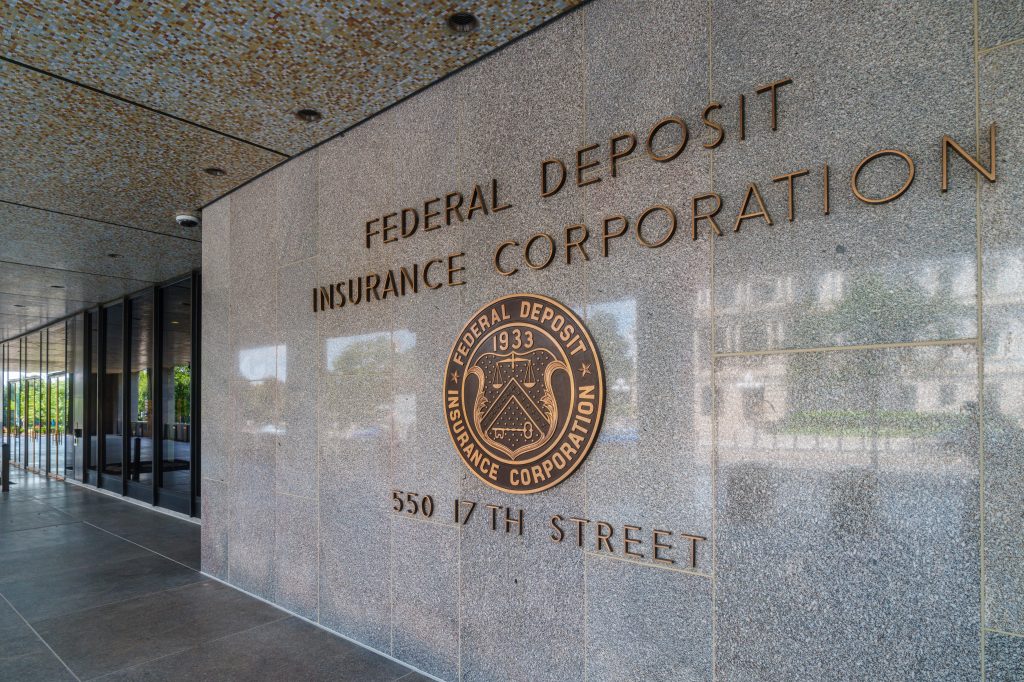There remain varied levels of progress in constructing a coherent environmental, social and governance (ESG) policy framework within Asia Pacific (APAC) despite the strong push for ESG disclosure regulations. This lack of clarity, lack of consistent taxonomy and gaps in commitment levels between territories has created an uneven regulatory landscape in the APAC. This can make it difficult to navigate business obligations and opportunities and to drive ESG initiatives.
Most of APAC’s largest economies and industrial hubs are continuously implementing ESG legislation and undergoing regulatory reform to keep up with the growing ESG investment scene and stakeholder requirements. Being aware of the varying ESG regulatory framework and disclosure requirements across the territories helps inform investment attractiveness and we are seeing increasing investment in those territories that are positioned as ESG friendly.
APAC ESG regulatory overview
Australia
Australia was one of the first APAC countries to implement an ESG disclosure regime and is continuing to implement further sustainability and ESG reporting requirements to ensure it is aligned with other prominent global jurisdictions.
Hong Kong and Singapore
These territories’ ESG regulatory landscape are generally seen as more advanced than other APAC jurisdictions. This should give investors confidence in the readiness and reliability of their ESG data. However, they still lag-behind those global players that have implemented solid, broader spectrum, ESG-disclosure policies.
China, Malaysia, and Thailand
ESG is in the development phase and there is a growing trend of ESG reporting driven by policy incentives and regulations. This will provide a level of certainty and comfort to investors.
Bangladesh, India, Indonesia, Philippines, and Vietnam
Investors may encounter difficulties in ensuring ESG compliance of potential investments. They may struggle to verify the data as it can be unreliable or involve political motivations. There is however a willingness to advance ESG regulations
The table below highlights APAC territories’ current ESG disclosure requirements.
| Territory | Private companies ESG requirements | Public companies ESG requirements |
| Australia | Specified companies must comply under various legislations | Must disclose compliance with recommended corporate governance practices (‘if not, why not’ approach). |
| Bangladesh | None | Must disclose corporate governance issues. |
| China | Recommended but not mandatory – prepare annual ESG report (or on any other disclosure cycle if appropriate). | ‘Key polluting entities’ must disclose in their annual report and half-year report. |
| Hong Kong SAR | None generally but banks, deposit-taking companies and certain fund managers must comply with a specific ESG framework. | Must publish annual ESG report as set out in the Listing Rules. Disclosures are on a ‘comply or explain’ basis. |
| India | Must comply with a few mandatory disclosure requirements. | Top 1,000 listed companies must publish the Business Responsibility and Sustainability Report annually from FY22-23 onwards. |
| Indonesia | Companies working with/related to natural resources must implement certain corporate social and environmental responsibility measures. | Must publish an annual sustainability report. |
| Malaysia | None | Must publish an annual sustainability report. |
| Singapore | None generally but fund management companies and real estate investment trust managers must comply with specific environmental risk management guidelines. | Must publish annual sustainability reports within the same timeframe as their annual reports. |
| The Philippines | None | Must publish an annual sustainability report. |
| Thailand | None | Must publish report on ESG performance within three months of the publication of their financial reports. |
| Vietnam | None | Must disclose ESG-related information in its annual report. |
What you will have noticed is that all territories have ESG reporting requirements on at least some, if not all, public companies. The picture is vastly different for private companies but we expect this to evolve as ESG regulations grow in APAC.
Below we’ve set out more detail on individual territory requirements.
| Australia | |
|---|---|
| Existing disclosure and reporting obligations are largely on a voluntary basis but we expect this to change with an overarching mandatory climate-related financial disclosure regime as the Australian government launched a consultation on this last December. The consultation paper suggests a phased implementation, with mandatory reporting rules initially covering large-listed entities and large financial institutions (such as banks, insurers and credit unions) as early as 2024. Australia’s ESG regulatory landscape is more advanced than many other APAC jurisdictions, but it still lags behind those global players that have implemented solid ESG disclosure policies (eg, European Union, Germany, the United Kingdom). | |
| Private companies | The Financial Services Council guidance provides a set of common baseline expectations for the investment management industry’s approach to achieving net zero emissions by 2050, disclosing climate-friendly investment features, and climate change risk reporting. While there is no single overarching ESG-focused legislation in Australia, there are a series of existing legislations which cover various areas of ESG disclosure, including the following: 1) Corporations Act 2001 – requires issuers of financial products to disclose the extent to which labour standards or environmental, social or ethical considerations are taken into account in the selection, retention or realisation of the investment; 2) Modern Slavery Act 2018 – requires companies based, or operating in Australia, with an annual consolidated revenue of AUD100m ($66m) to report annually on the risks of modern slavery in their operations and supply chains, and actions to address those risks; 3) Workplace Gender Equality Act 2012 – requires employers with 100 or more employees in Australia to lodge an annual report containing information relating to various gender equality indicators; and 4) National Greenhouse and Energy Reporting Act 2007 – requires companies that meet certain thresholds to report information on greenhouse gas emissions, greenhouse gas projects, energy consumption and energy production. |
| Listed companies | Companies listed on the Australian Securities Exchange must include a corporate governance statement in their annual reports, which discloses the extent to which the listed company has followed the corporate governance practices, structured around eight central principles addressing various ESG aspects. As part of the disclosure, listed companies are required to adopt an ‘if not, why not’ approach which allows you not to adopt the recommended practice if it is not appropriate to your particular circumstances, but the reasons for this decision must be explained in your report. |
| Bangladesh | |
|---|---|
| ESG reporting in developing countries such as Bangladesh is often unreliable or involves political motivations. ESG-driven investment may prove challenging due to the lack of availability of complete and accurate data. However, Bangladesh is an area of enormous potential, particularly manufacturing, and the government is working on implementing better workplace regulations. For now, Bangladesh has only limited mandatory disclosure obligations on listed companies. Although we expect their ESG framework will continue to develop and strengthen to capitalize on the increased investment interest of multinational companies, which are often subject to extra-territorial ESG requirements, and value consistency of standards across their investments and supply chains. | |
| Private companies | The central bank of Bangladesh (Bangladesh Bank), published the Sustainable Finance Policy (Policy) to guide banks and financial institutions to accommodate ESG issues in their financing portfolios and credit/investment management. The Policy incorporates targets for banks and financial institutions in respect of greenhouse gas emission reduction and strengthened climate resilience. At present few banks, financial institutions and corporate entities have committed to adhere to the Policy’s guidelines. This is a consequence of the corporate sector being saturated with highly concentrated family ownership with powerful political ties overriding mechanisms of governance in Bangladesh. |
| Listed companies | The Bangladesh Securities and Exchanges Commission requires listed companies to disclose various issues, including details and the composition of its board of directors, and other committees of the listed company. The Guidelines primarily focus on the ‘G’ component of ESG and have yet to incorporate disclosure requirements for broader and equally important social matters such as sustainability, anti-discrimination, and safe working conditions. |
| China | |
|---|---|
| ESG disclosure in China remains in its development phase, but there has been a growing trend of ESG reporting in the country driven by policy incentives and regulations, including Chinese President Xi Jinping formally announcing that China would strive for peak carbon emission by 2030 and achieve carbon neutrality by 2060. While China has not yet imposed mandatory ESG disclosure requirements for private companies, listed companies deemed as ‘key polluting entities’ (ie major dischargers of pollutants or companies that use or discharge toxic or harmful substances) are required to disclose ESG information on a regular basis. | |
| Private companies | The State-backed think tank, China Enterprise Reform and Development Society, published China’s first locally developed corporate ESG disclosure standards, which came into effect on June 1, 2022 and are a key milestone in standardising ESG disclosures in PRC. The disclosures include both quantitative and qualitative data and notably, in respect of greenhouse gas disclosures, disclosure of operations emissions and upstream, downstream and supply chain emissions. Chinese enterprises are recommended to report annually or on any other disclosure cycle that is most suited to the nature of their business. Read more on this in our briefing. |
| Listed companies | In 2021, the China Securities Regulatory Commission published a set of amendments to its disclosure rules. Listed companies, who are ‘key polluting entities,’ must disclose information in their annual report and half-yearly report, including discharge of pollutants, environmental impact assessment of construction projects and other environmental protection administrative permits. For other listed companies, except for disclosure of administrative penalties relating to environmental issues, there are no other mandatory ESG-related disclosure requirements. |
| Hong Kong | |
|---|---|
| Hong Kong is developed from an ESG reporting perspective within the APAC region, giving investors confidence in the readiness and reliability of ESG data. However, Hong Kong regulators have highlighted the need for further comparability and reliability in terms of sustainability reporting at the corporate level. Investors should expect to see, in the near-term, enhanced mandatory climate reporting in Hong Kong in alignment with the Taskforce on Climate-related Financial Disclosures, and expect to take advance action in anticipation of these more robust requirements. Last year, the Securities and Futures Commission launched its Agenda for Green and Sustainable Finance, which sets out the areas of focus to support the transition towards a greener economy. These are corporate disclosures, monitoring the implementation of and enhancing existing measures, and a regulatory framework for carbon markets. It is expected that green finance will be one of the top agendas for financial regulators in Hong Kong, with the aim of aligning with Hong Kong’s commitment to carbon neutrality by 2050. | |
| Private companies | No specific ESG-focused regulations. The existing regime comprises of rules targeting specific entities or sectors. Directors are under a general duty to prepare a director’s report for each financial year, which should include discussion on the company’s environmental policies and performance, and its compliance with the relevant environmental laws and regulations that have a significant impact on the company. This is not a mandatory requirement for all private companies. Authorised institutions (ie banks, restricted licence banks or deposit-taking companies), regulated by the Hong Kong Monetary Authority, are required to comply with climate risk management requirements to build climate resilience by incorporating climate considerations into governance, strategy, risk management and disclosure. Fund managers registered with the Securities and Futures Commission are required to comply with the requirements regarding management and disclosure of climate-related risks set out in the amended Fund Manager Code of Conduct. |
| Listed companies | Listed companies are required to publish an ESG report annually (as part of their annual report or a standalone report). Listed companies must also include a statement from the board containing: 1) The board’s oversight of ESG issues; 2) The board’s ESG management approach and strategy; and 3) How the board reviews progress made against ESG-related goals and targets. There are ‘comply or explain’ provisions, which require listed companies to either report on the provision or provide considered reasons for not doing so. The Hong Kong Exchange recently recommended that listed companies familiarise themselves with the new International Sustainability Standards Board’s disclosure requirements, expected to be finalised and endorsed this year. Read more on this in our briefings on Hong Kong listed companies and The SFC’s and HKMA’s ESG reporting requirements. |
| India | |
|---|---|
| An ESG regulatory framework is forming at a steady pace. With India hailed as one of the future global hubs for producing alternate fuel and a key platform for renewable energy, investors can expect to see development of a sustainable ESG regulatory framework become a national project for India. India’s Prime Minister Narendra Modi pledged that India would achieve net zero emissions by 2070. In line with this, India is proving to be a jurisdiction determined to demonstrate its ability to respond promptly to the ESG growth of its counterparts in the APAC region. Whilst ESG reporting requirements for private companies are still in their development stage, India has taken major steps in establishing an ESG regime for listed companies. | |
| Private companies | There are few mandatory ESG disclosure requirements. The Companies Act 2013 mandates companies to include, in their annual board report, a discussion on energy and to provide details about policies developed and implemented by the company on corporate social responsibility. Directors of Indian companies owe their duties not only to the company and the shareholders, but also to the community and the environment. Therefore a director who makes a decision that is in the best financial interest of the company but detrimental to the environment may actually be in breach of their duties. |
| Listed companies | In 2021, the Securities and Exchange Board of India introduced the Business Responsibility and Sustainability Report regime which is built upon other international reporting frameworks and is a significant step and means that ESG filings, for the top 1,000 listed companies in India, are mandatory since the 2022-23 financial year. Listed entities falling under the regime are required to prepare a report disclosing their performance against the nine principles of the National Guidelines on Responsible Business Conduct as part of their annual report. |
| Indonesia | |
|---|---|
| Indonesia has shown willingness to invest in ESG government support and facilities in green financing, but has yet to invest in promoting accountability through an ESG disclosure regime. Investors may encounter difficulties in ensuring ESG compliance of potential investments and may not be able to verify the data provided on ESG matters. However, the Ministry of Investment and the Ministry of Foreign Affairs have entered into a Memorandum of Understanding to strengthen their economic diplomacy in foreign direct investment and indicate a commitment to targeting green investment opportunities. | |
| Private companies | Those related to natural resources are required to implement corporate, social and environmental responsibility measures. In practice it can be difficult to determine whether a company has complied as there is no clear guidance on what these measures should entail and the legislation is vague. Those related to natural resources are required to implement corporate, social and environmental responsibility measures. In practice it can be difficult to determine whether a company has complied as there is no clear guidance on what these measures should entail and the legislation is vague. |
| Listed companies | Listed companies and financial services institutions are required, by the Indonesia Financial Services Authority, to prepare an annual sustainability report, which can be part of their annual report (or as a standalone report). It should include their sustainability strategy including governance and performance. |
| Malaysia | |
|---|---|
| Malaysia is collaborating with global parties (such as the London Stock Exchange) to improve transparency and consistency in sustainability disclosures for listed companies, which will provide a level of certainty and comfort to investors. There is still work to be done to extend ESG disclosures beyond governance and environmental matters to material human rights matters. Malaysia has shown commitment to doing so through its National Action Plan on Business and Human Rights, its ratification of International Labour Organisation Protocol 29, as well as other ESG initiatives. All of which help Malaysia align and keep pace with the sustainability commitments of their key trading partners such as the European Union, China and South Korea. Malaysia has set an unconditional target to cut carbon intensity by 45% by 2030 and is prioritising ESG-focused development programmes and projects in the country’s 2023 Budget. Malaysian regulators are making moves to enhance ESG disclosure with the Securities Commissions’ Sustainable and Responsible Investment Roadmap and the stock exchange Bursa Malaysia setting sustainability reporting guidelines on corporate governance and deploying a centralised sustainability platform that will serve as a repository for listed companies’ ESG disclosures as well as an educational resource for corporates. | |
| Private companies | There are no mandatory ESG reporting requirements. However, private companies across all industries are strongly encouraged by the regulators to implement sustainable practices and comply with the Malaysian Code on Corporate Governance. There is a noticeable increase of small and medium-size companies that have adopted ESG-oriented business strategies. In addition there are existing laws that govern ESG-related matters, for example the Employment Act, the Anti-Trafficking in Persons and Anti-Smuggling of Migrants Act and the various Environmental Quality regulations. |
| Listed companies | Mandatory ESG reporting standards were introduced in 2016 for all publicly listed companies. To meet them requires the establishment of sustainable development practices, equity, diversity, and human rights policies, and anti-bribery and anti-sexual harassment policies. Recent guidelines, set by Bursa Malaysia, include an updated list of regulatory requirements designed to help align Malaysia’s current reporting standards with the globally-accepted TCFD recommendations and sets out best practices for disclosures. The guidelines also incorporate the UN SDGs. Listed companies must produce an annual sustainability report setting out how the company’s operations are affected by climate-related risks and opportunities with respect to governance, strategy, risk management, and metrics and targets. They must also provide a narrative statement of the management of material economic, environmental and social risks and opportunities. |
| Singapore | |
|---|---|
| Singapore has made it clear that ESG is a high priority. We expect to see it continue to invest in developing a solid foundation for its long-term plans for sustainability. In February 2021, Singapore launched the Singapore Green Plan 2030 as a whole-of-nation movement to advance Singapore’s national agenda on sustainable development. This plan sets out concrete measurable targets for the country in various aspects, including reduction of waste production and energy consumption, greener infrastructure, increasing green investments, adaptation to rising sea levels and enhancing flood resilience. Singapore listed companies are currently subject to a comply-or-explain regime with a phased transition towards making the regime mandatory for companies in certain industries. Although there are no overarching disclosure standards for private companies, existing ESG-focused guidelines and laws operate to regulate the environmental and social aspects of private companies. | |
| Private companies | There are a number of laws in Singapore that regulate specific ESG issues for private companies. For example, the Carbon Pricing Act 2018 introduced a fixed-price credit-based tax mechanism to address carbon emissions, and the Energy Conservation Act 2012 introduced mandatory energy management practices and reporting requirements for greenhouse gas emissions. From a social perspective, the Singapore government has also enacted laws that govern with health and safety and employment practices. Most recently, Singaporean regulators have proposed workplace discrimination laws to regulate discriminatory practices and promote workplace fairness and harmony, with the goal to legislate by 2024. The Monetary Authority of Singapore (MAS) introduced the Green Finance Action Plan, which sets out its strategies to support a sustainable Singapore and facilitate Asia’s transition to a low carbon economy. As part of the Plan, MAS has further issued the Environmental Risk Management Guidelines, which details sound environmental risk management practices that banks, insurers and asset managers are required to adhere to. |
| Listed companies | Following a consultation and based on the recommendations of the Task Force on Climate-related Financial Disclosures (TCFD), the Singapore Exchange has introduced a phased approach for annual reports published from 2023-2025 as follows: 1) Reports published in 2023: climate reporting mandatory for all listed companies on a comply-or-explain basis. 2) Reports published in 2024: climate reporting mandatory for all listed companies in the financial industry, agriculture, food and forest products industry, energy industry, and all other industries to remain on a ‘comply-or-explain’ basis. 3) Reports published in 2025: mandatory climate reporting scope expanded to include the materials and buildings industry and the transportation industry, and all other industries to remain on a comply-or-explain basis. The annual sustainability report should cover disclosures on core ESG factors and material ESG factors (which are identified by reviewing the business in the context of the value chain and determining those ESG factors relating to the company’s interaction with its physical environment, social community and its governance which are material for continuity of its business), climate-related disclosures consistent with TCFD recommendations, details on the company’s ESG policies, practices and performance and ESG targets of the company. |
| The Philippines | |
|---|---|
| The Philippines has lagged behind its APAC counterparts in the development of an ESG reporting and disclosure framework. This was acknowledged by the Philippine Securities and Exchange Commission (SEC) and steps have been taken to play catch up. The Philippines Stock Exchange and the SEC are jointly developing an ESG compliance index with the intention of attracting investors tracking sustainability initiatives, demonstrating a genuine desire to establish a market-wide culture of sustainability, and investors can expect an increase in dependable ESG data. | |
| Private companies | There are no ESG disclosure requirements and we have yet to see the government enact ESG legislation targeted at private corporations. However, at the end of 2021, the SEC confirmed its goal is to implement sustainability reporting obligations on a ‘comply-orexplain’ basis and that there will be a mandatory approach to sustainability report for all types of corporations. We do not, however, expect this to be executed any time soon. |
| Listed companies | SEC released a Memorandum Circular requiring companies listed on the Philippines Stock Exchange to submit a report on the performance of their ESG initiatives on a ‘comply-or-explain’ basis. Such ESG initiatives include energy consumption, water consumption, ecosystems and biodiversity, air emissions, employee management, diversity and equal opportunity, occupational health and safety, and supply chain management. SEC has since announced that a sustainability report, separate from a company’s annual reports, would become mandatory from 2023 onwards. |
| Thailand | |
|---|---|
| Thailand has proved itself a key player in the ESG space by taking the lead in climate disclosure rate amoung the ASEAN jurisdictions, but more is needed to achieve consensus and consistency in ESG reporting. We expect regulators will roll out more comprehensive disclosure requirements. | |
| Private companies | There are no mandatory ESG disclosure obligations but private companies can (and do) voluntarily disclose compliance with ESG criteria, including carbon footprint reduction and supply chain transparency. They are also required to comply with existing laws that govern ESG-related matters, for example the Labour Protection Act, the Hazardous Substance Act and the Enhancement and Conservation of the National Environmental Quality Act. |
| Listed companies | Since 2022, it is mandatory for all public companies listed on the Stock Exchange of Thailand (SET) to report on their ESG performance via the Form 56-1 One Report annual public filing. The submission must be made within three months from the publication of the company’s financial report. Thailand Securities and Exchange Commission Corporate Governance Code has not mandated the choice of sustainability framework although SET encourages using the Global Reporting Initiative as the reporting framework. The lack of a bespoke ESG framework or mandatory use of a well-recognised global ESG framework for SET listed companies may be a barrier for businesses of a small to medium scale that are not familiar with global sustainability reporting standards. In October 2022, SET launched the ESG Data Platform which gathers ESG data of listed companies, offers an end-to-end data filing and analytics system, and allows distribution of data to stakeholders in a streamlined manner. |
| Vietnam | |
|---|---|
| Compared to other APAC countries, Vietnam faces more challenges in establishing a successful ESG disclosure and accountability regime due to its greater exposure to industries such as the steel and manufacturing sector. Nonetheless, the Vietnamese government has made clear its intention of investing into promoting good ESG practices and addressing ESG-related issues. As investor interest in Vietnam continues to grow as a potential manufacturing alternative, we expect ESG governance in Vietnam to develop. | |
| Private companies | An ESG regulatory framework came into effect in 2022 and remains fairly new and untested. This new Law on Environmental Protection came into effect in January 2022 and refines the existing environmental impact assessment regime by applying various levels of environment impact assessment requirements on investment projects based on their environmental impact. This means that investors are required to review the environmental impact of any new investment project to determine the level of environmental impact assessment requirements applicable and act accordingly. The Vietnamese government also revised the existing Law on Investment, to introduce a new mechanism to prohibit any extension of existing investment projects that involve the use of obsolete, environment-threatening or resource-intensive technology. Existing investors who wish to remain in the Vietnam business will have to account for the environmental impact of their current investment projects and improve their technology where necessary. |
| Listed companies | Listed companies, as part of their annual report, are required to disclose an ESG report covering: 1) greenhouse gas emissions; 2) management of raw materials; 3) energy consumption; 4) water consumption; 5) compliance with the law on environmental protection; 6) policies related to employees; 7) responsibility for local community; and 8) green capital market activities. In their Board of Management’s reports, listed companies are required to include an assessment report related to their environmental and social responsibilities, covering assessment concerning the company’s performance in respect of the disclosures listed above, labour issues and corporate responsibility for the labour community. |
Jack Chai, partner – jackcai@eversheds-sutherland.com, Dickson Ng, head of corporate (Hong Kong) – dicksonng@eversheds-sutherland.com, and Gabrielle Honey, senior associate – gabriellehoney@eversheds-sutherland.com, Eversheds Sutherland.


















